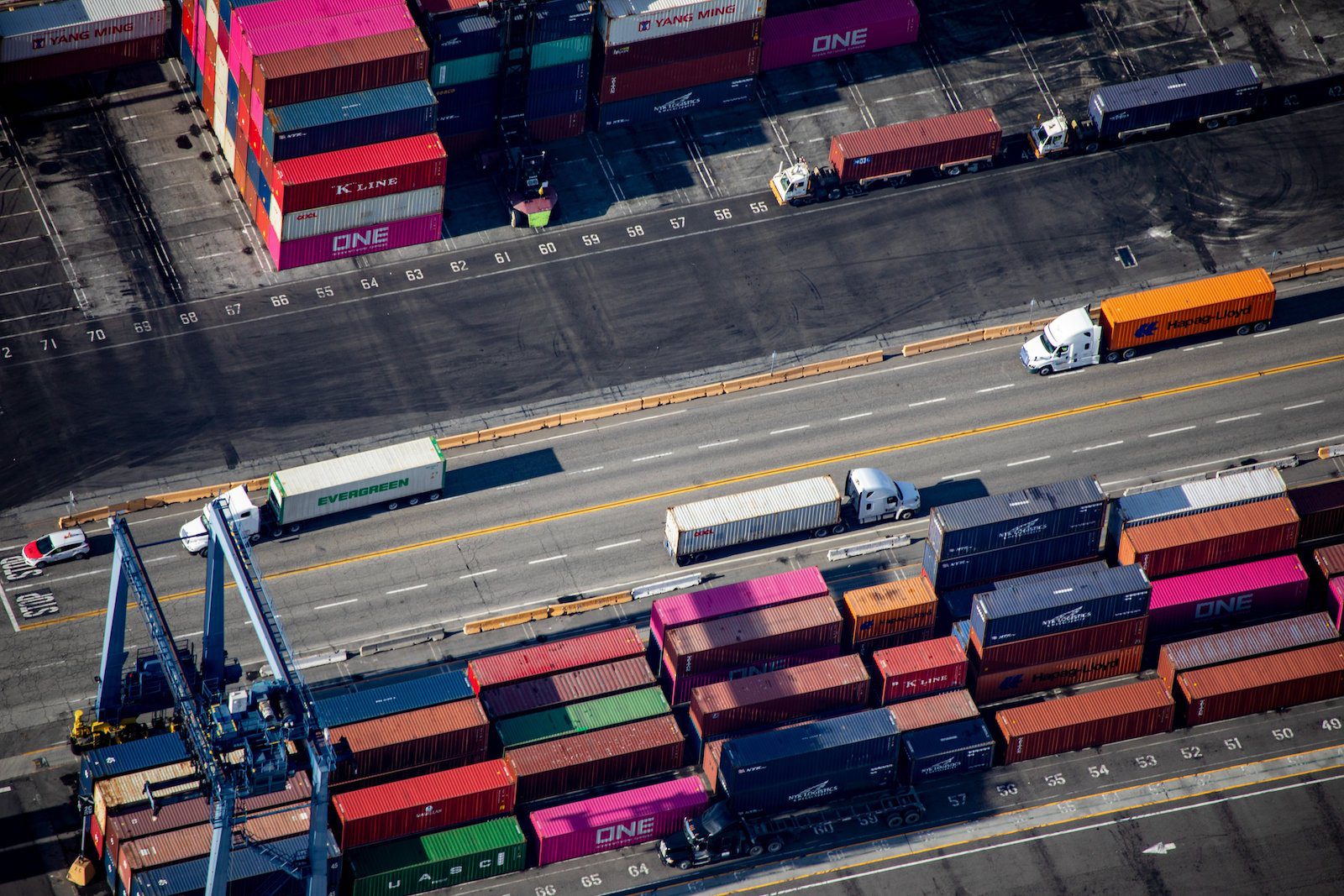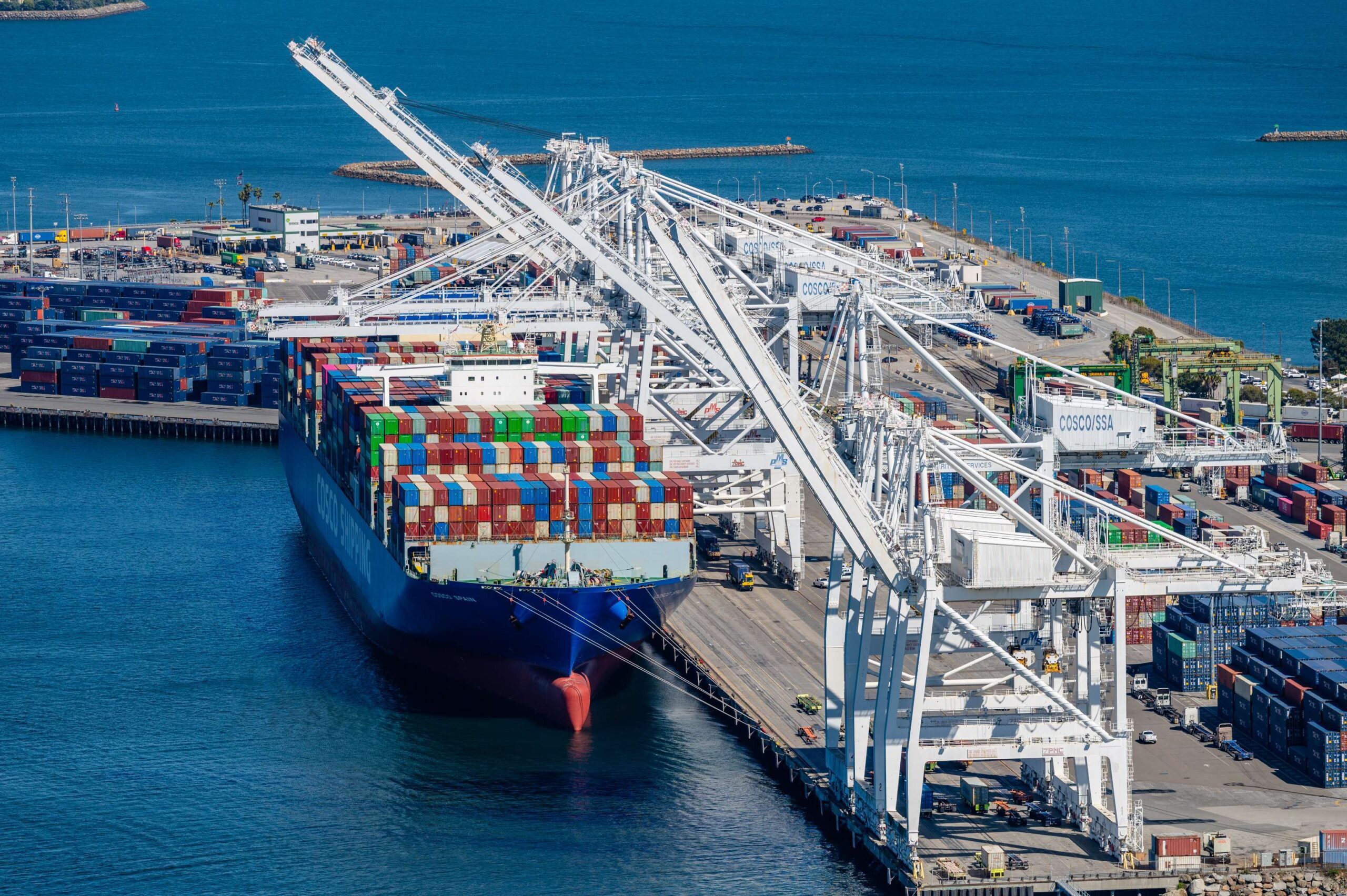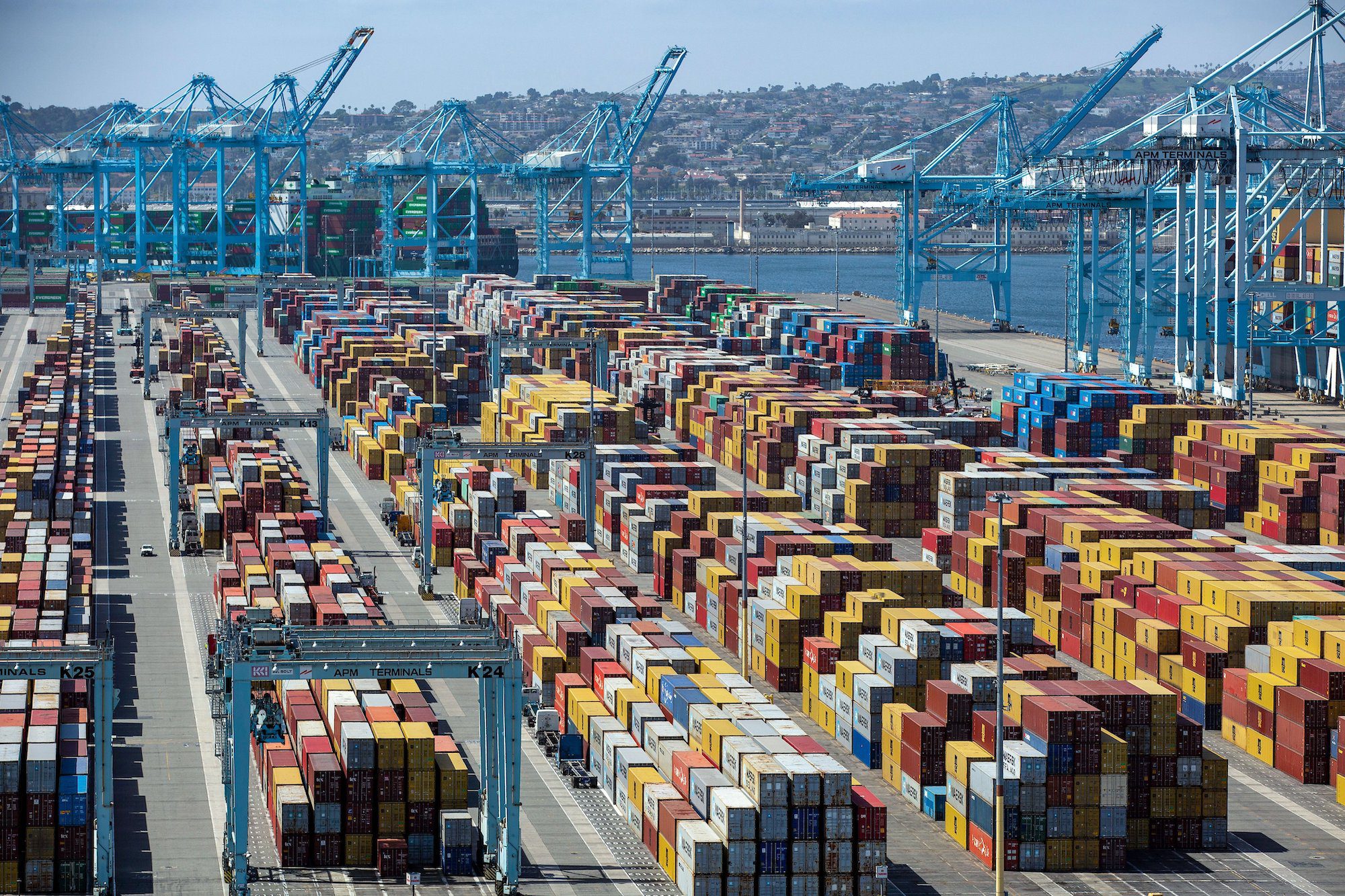Updated: October 24, 2023 (Originally published December 27, 2022)
Dwell times for local containers at the ports of Los Angeles and Long Beach have returned to pre-pandemic levels, reflecting improving congestion conditions amid a steep drop in inbound containers.
Container dwell time refers to the amount of time a container stays at a marine terminal after it is unloaded from a ship and taken off the premises by either truck (local) or rail.
Truck-bound local containers stayed on marine terminals at the San Pedro ports for 2.8 days on average in November, down from 3.5 days in October and 8.37 days the same month one year ago, according to the Pacific Merchant Shipping Association (PMSA). The 2.8 average marks the lowest number of days since July 2020 before the U.S. imports surge began. In addition, only 7.2% of containers exceeded five days at terminals, down from 10.9% the month before and 50% one year ago in November 2021.
Prior to the pandemic, local containers typically remained on premises under three days.
Container dwell time for rail-bound cargo also showed signed of improvement, but remained an above-average 9.1 days in November, the PMSA said. While higher than dwell time for truck-bound containers, it is an improvement compared to 14.2 days the month before. The number of rail-bound containers exceeding five days in November was 45.2%, down from 63.2% the month before and a peak of 76.7% in June 2022.
“Container dwell time has dropped significantly and is back at pre-pandemic levels for local cargo,” the PMSA said in a statement.
The falling dwell times come as U.S. imports have collapsed in recent months, led by a massive 26% year over year decline for West Coast ports in November—quite possibly the biggest decline ever for the West Coast.
“Containers are no longer remaining on terminals for long periods of time, cargo is flowing, and terminals are ready to handle more cargo,” said Jessica Alvarenga, Director of Government Affairs for the PMSA.
Long-dwelling containers at the ports of Los Angeles and Long Beach have been an ongoing story throughout the pandemic, as the surge of imports led to an unprecedented number of containers dwelling for long periods at marine terminals.
To help combat the issue, the ports of Los Angeles and Long Beach in November 2021 initiated a program that would charge ocean carriers with long-dwelling containers. Although the fee was never implemented or collected, port and government officials have credited it with helping to reduce the number of long-dwelling containers at the ports. The temporary program is now set to expire next month.
Editorial Standards · Corrections · About gCaptain

 Join The Club
Join The Club











